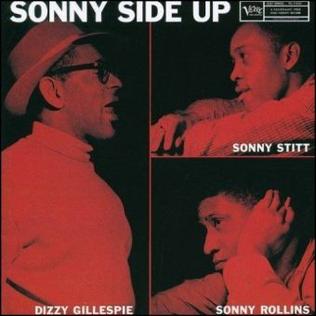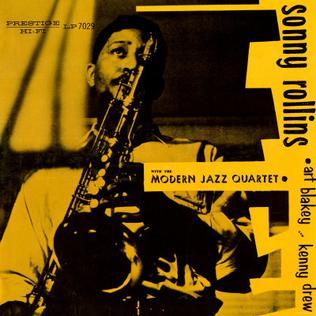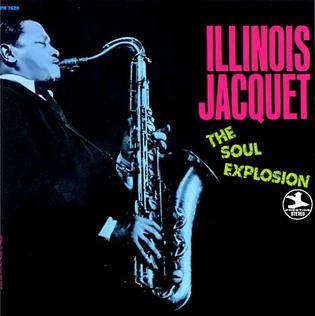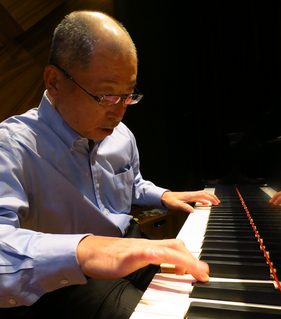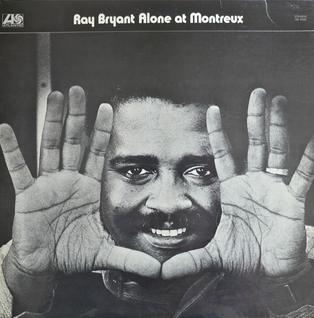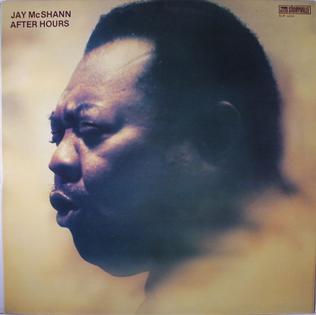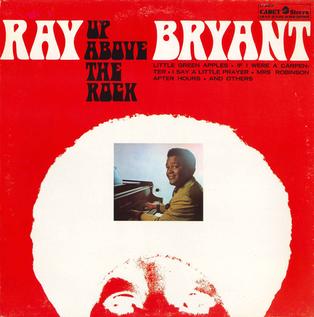"After Hours" is a blues piano composition composed by pianist Avery Parrish. It is usually played in G.
Blues is a music genre and musical form which was originated in the Deep South of the United States around the 1870s by African Americans from roots in African musical traditions, African-American work songs, and spirituals. Blues incorporated spirituals, work songs, field hollers, shouts, chants, and rhymed simple narrative ballads. The blues form, ubiquitous in jazz, rhythm and blues and rock and roll, is characterized by the call-and-response pattern, the blues scale and specific chord progressions, of which the twelve-bar blues is the most common. Blue notes, usually thirds, fifths or sevenths flattened in pitch are also an essential part of the sound. Blues shuffles or walking bass reinforce the trance-like rhythm and form a repetitive effect known as the groove.
James Avery Parrish was an American jazz pianist, composer and arranger. He wrote and recorded "After Hours". Injuries from a bar fight in 1943 ended his career as a pianist.
The first recording of the song was by Parrish with the Erskine Hawkins Orchestra, on June 10, 1940, [1] and was released on the Bluebird record label. It was an instant hit, and subsequently became a jazz standard. The song has been recorded many times by such diverse artists as Benny Goodman, Dizzy Gillespie with Sonny Rollins and Sonny Stitt, Woody Herman, Hazel Scott, Phineas Newborn, Hank Crawford, Buck Clayton, Ellis Marsalis, Roy Buchanan, Ryo Fukui, Muddy Waters and numerous others.

Erskine Ramsay Hawkins was an American trumpeter and big band leader from Birmingham, Alabama, dubbed "The 20th Century Gabriel". He is most remembered for composing the jazz standard "Tuxedo Junction" (1939) with saxophonist and arranger Bill Johnson. The song became a popular hit during World War II, rising to No. 7 nationally and to No. 1 nationally. Vocalists who were featured with Erskine's orchestra include Ida James, Delores Brown, and Della Reese. Hawkins was named after Alabama industrialist Erskine Ramsay.

Bluebird Records was a record label known for its low-cost releases, primarily of blues and jazz in the 1930s and 1940s. It was founded in 1932 as a lower-priced RCA Victor subsidiary label. Bluebird concentrated on producing and selling music inexpensively. It created what came to be known as the "Bluebird sound", which influenced rhythm and blues and early rock and roll.
Jazz standards are musical compositions that are an important part of the musical repertoire of jazz musicians, in that they are widely known, performed, and recorded by jazz musicians, and widely known by listeners. There is no definitive list of jazz standards, and the list of songs deemed to be standards changes over time. Songs included in major fake book publications and jazz reference works offer a rough guide to which songs are considered standards.
The version used since 1984 as the theme song for the Jazz After Hours program on Public Radio International is a solo piano performance by Ray Bryant, recorded at the 1972 Montreux Jazz Festival. [2]

Public Radio International (PRI) is an American public radio organization. Headquartered in Minneapolis, Minnesota, PRI provides programming to over 850 public radio stations in the United States.

Raphael Homer "Ray" Bryant was an American jazz pianist, composer, and arranger.

The Montreux Jazz Festival is a music festival in Switzerland, held annually in early July in Montreux on the Lake Geneva shoreline. It is the second largest annual jazz festival in the world after Canada's Montreal International Jazz Festival.







